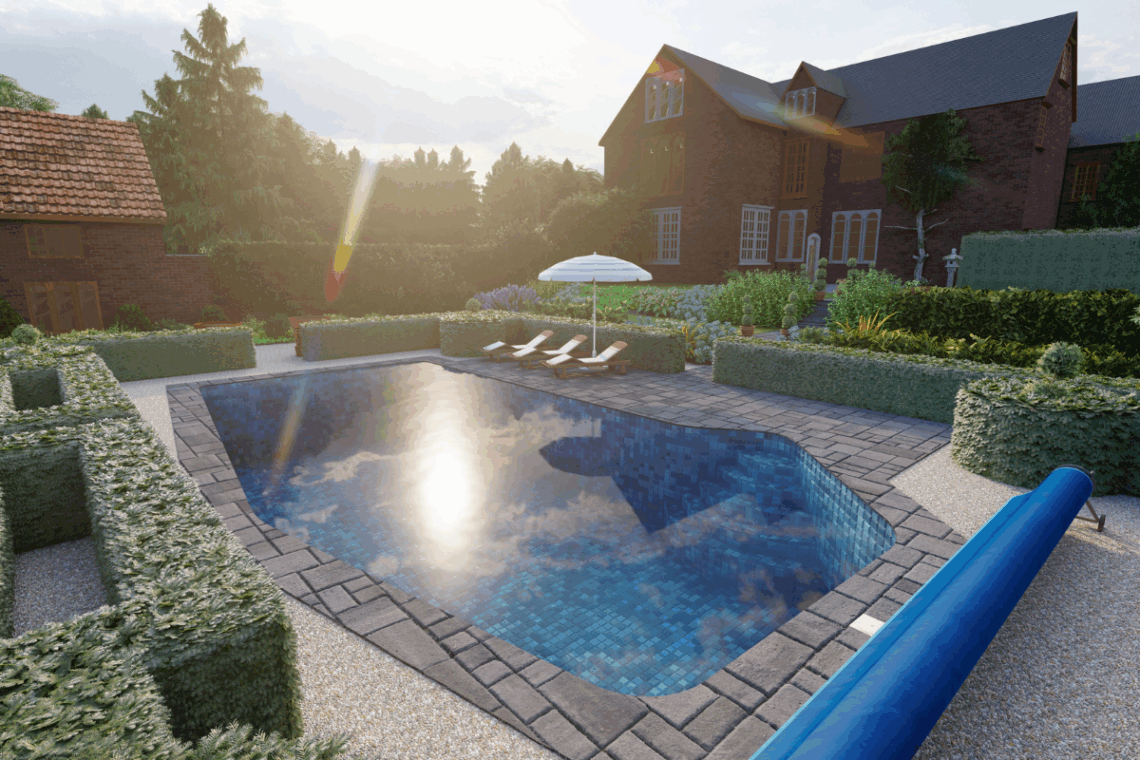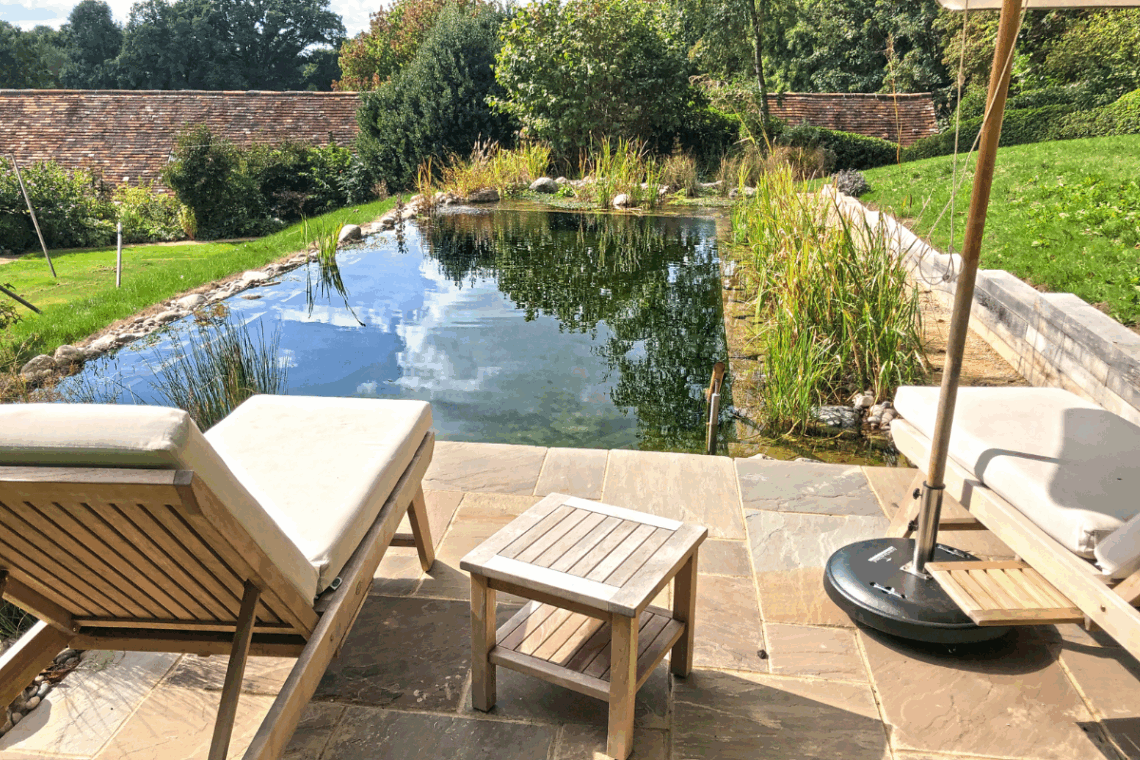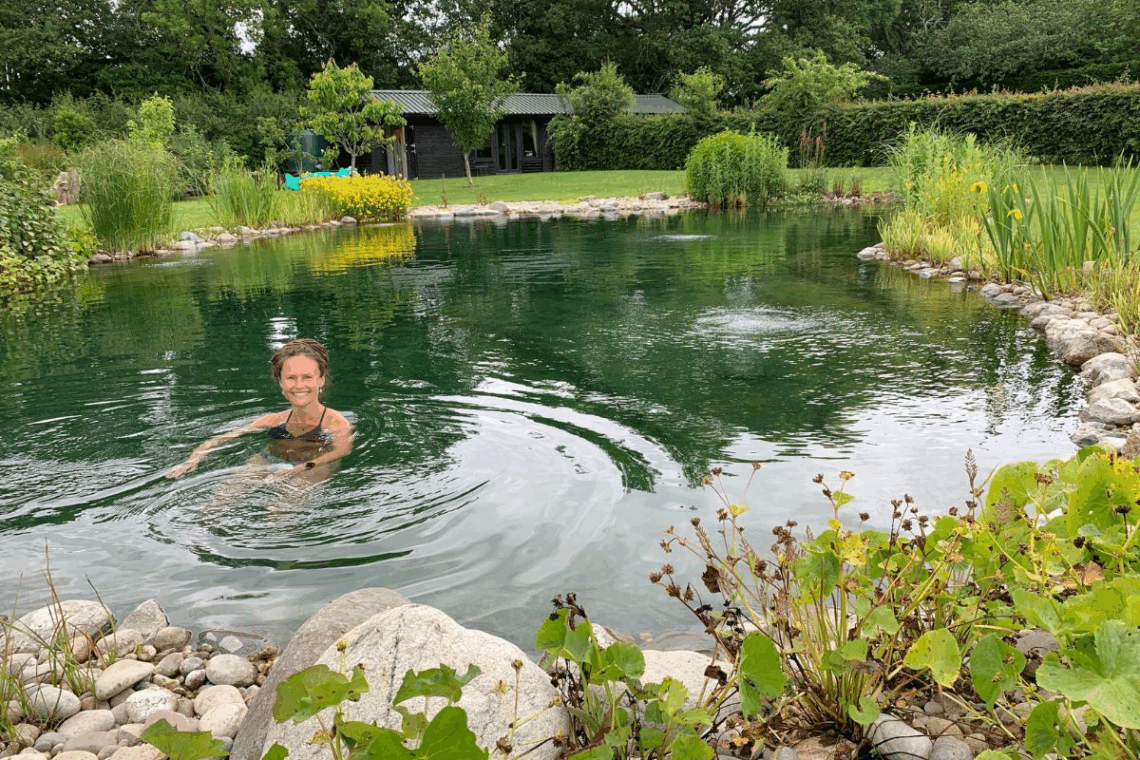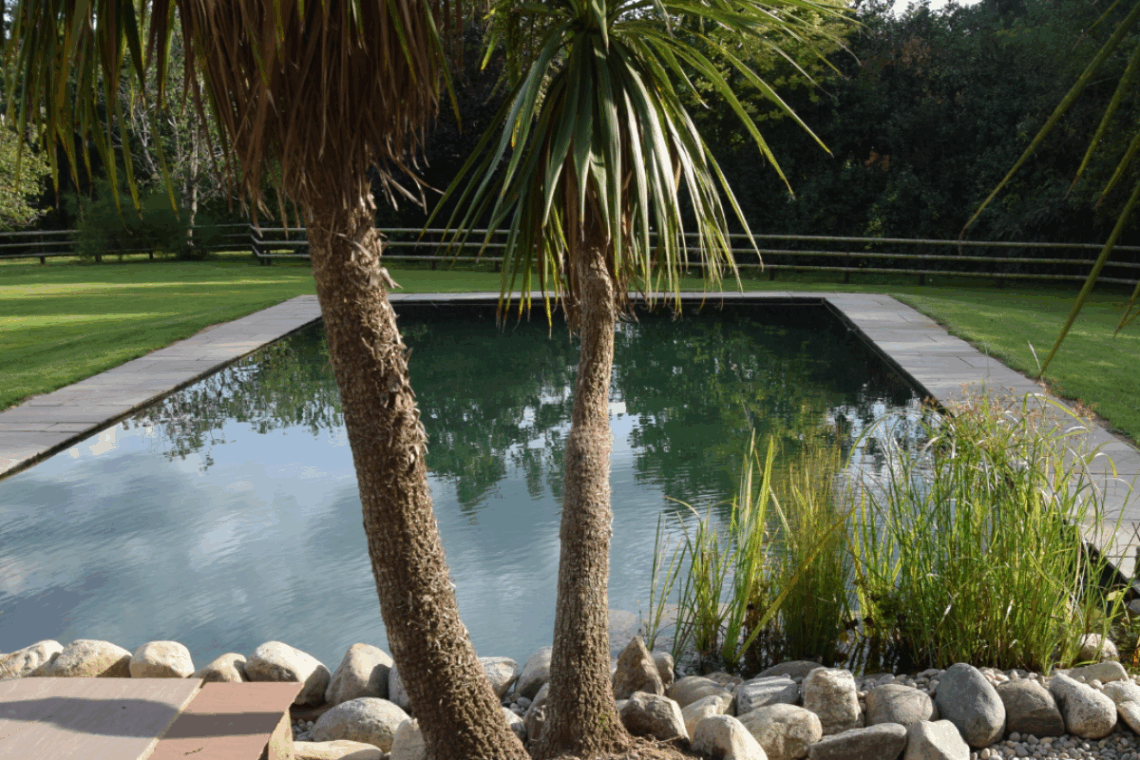Adding a swimming pool to your back garden is a major investment, but the cost varies widely depending on the type, size, and construction materials. Whether you’re looking for a traditional pool or a more sustainable swimming pond, understanding the costs involved is crucial before taking the plunge.
In this guide, we’ll explore the cost of both conventional swimming pools and swimming ponds, helping you decide which option is right for your project.
How Much Does a Swimming Pool Cost?

The cost of a swimming pool in the UK depends on several factors, including the type of pool you choose. Below is an overview of common pool types and their estimated costs:
- Above-Ground Pools (£500-£10,000): These pools come in inflatable or rigid designs. While they don’t require excavation, they are less durable and have limited customisation options.
- Fibreglass Pools (£20,000-£65,000): Pre-formed fibreglass shells are lowered into an excavated hole, making them relatively quick to install. These pools offer a smooth, non-porous surface that requires less maintenance than concrete pools.
- Concrete Pools (£45,000-£150,000+): Concrete pools are fully customisable and built to last. However, they come with a higher price tag due to labour-intensive construction and ongoing maintenance requirements.
- Natural Swimming Ponds (£75,000+): For those looking for an environmentally friendly option, a natural swimming pond is a great choice. They use pond plants and biofiltration systems instead of chlorine, creating a healthier, self-sustaining environment. They may have higher initial costs but require significantly less long-term maintenance.
Installation costs for each can vary significantly depending on the type of pool and the complexity of the project.
Factors Affecting Swimming Pool Costs
Several factors influence the total cost of installing a swimming pool or pond:
- Size & Depth: Larger pools require more materials and labour.
- Site Preparation: Excavation, ground stability, and site access can impact costs.
- Materials: Concrete, fibreglass, and liner pools have different price points, which can affect the overall build costs.
- Heating & Filtration: Traditional pools require ongoing energy use, whereas ponds are naturally regulated.
- Landscaping & Features: Extras like decking, waterfalls, or plant zones can add to the cost.
6 Reasons to Choose a Natural Swimming Pond Over a Traditional Pool

While conventional pools offer a controlled swimming environment, they come with high chemical use and ongoing maintenance. In contrast, natural swimming ponds provide a beautiful, eco-friendly alternative with several advantages:
1. Lower Running Costs
Traditional pools require costly filtration, heating, and chemical treatments, all of which add up over time. A natural swimming pond, however, relies mostly on biological processes, reducing energy consumption and saving you money in the long run.
2. Wildlife Friendly
Unlike chlorinated pools, which are inhospitable to aquatic life, swimming ponds support a thriving pond ecosystem. They attract birds, insects, and amphibians, creating a dynamic and biodiverse feature in your garden.
3. Aesthetic Appeal
Swimming ponds seamlessly blend into the landscape, providing a visually stunning addition to your garden. Unlike artificial pools, which often look out of place, a swimming pond enhances the natural beauty of its surroundings.
4. Healthier Swimming Experience
Swimming in naturally filtered water is better for your skin, hair, and overall well-being. Without exposure to harsh pool chemicals, you can enjoy a more refreshing and rejuvenating experience.
5. Year-Round Enjoyment
Even when you’re not swimming, a natural pond remains an attractive garden feature. Whether frozen over in winter or bursting with life in summer, it provides year-round beauty and tranquillity.
6. Customisable Design Options
Unlike traditional pools that follow standard shapes and sizes, different types of swimming ponds can be designed to fit your specific landscape and personal preferences. Whether you want a small dipping pond or a larger area for family swimming, the possibilities are endless.
Final Thoughts

Choosing between a swimming pool vs swimming pond comes down to your priorities. If you value sustainability, lower maintenance, and a connection with nature, a swimming pond is an excellent investment.
At Ponds by Michael Wheat, we specialise in designing and building stunning, natural swimming ponds tailored to your garden. If you’re considering a pool-to-pond conversion or a brand-new installation, get in touch with us today to explore your options.
Frequently Asked Questions

1. Do I need planning permission for a swimming pool or pond?
In most cases, outdoor pools do not require planning permission unless they are located in conservation areas or exceed certain size limits. Swimming ponds, being more natural, usually fall under permitted development but may still require pond planning permission if major landscaping is involved.
Always check with your local government regulations before starting work, or hire a pool or pond expert who has the knowledge needed to keep your project on track.
2. Can a swimming pond be heated?
While traditional pools often require heating systems, swimming ponds rely on natural water temperature. Some owners install swimming pond heating solutions to extend their swimming season, although there are some benefits of cold water swimming!
3. Can I convert my existing pool into a natural swimming pond?
In most cases, yes! If you’re considering a pool-to-pond conversion, this can be a cost-effective way to transform an unused or outdated swimming pool into a stunning natural feature.
Not only does it repurpose existing infrastructure, but it also provides all the benefits of a natural swimming pond without the extensive costs of a full rebuild. At Ponds by Michael Wheat, we offer pool-to-pond conversions, turning old or underused pools into stunning wildlife-friendly swimming areas.
4. Are swimming ponds safe?
Absolutely. Well-designed swimming ponds include shallow regeneration zones and clear swimming areas. They are safe for families while providing a chemical-free experience.
5. Does a swimming pool or pond add value to my home?
While both may increase property value, swimming ponds particularly appeal to eco-conscious buyers and require lower long-term running costs.